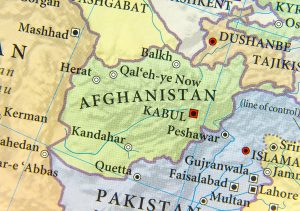In the Chinese city of Nyingchi in Tibet, Pakistan’s Foreign Minister Jalil Abbas Jilani met his Afghan counterpart Amir Khan Muttaqi on October 5. They were both attending the 3rd Trans-Himalaya Forum for International Cooperation hosted by China. Bilateral relations and trade between Afghanistan and Pakistan were supposed to be the core of the discussion between the two sides. What dominated the proceedings, however, was the issue of Afghan refugees in Pakistan, who have been asked to voluntarily leave the country by November 1.
In no uncertain terms, Muttaqi told Jilani that “negative media outbursts, hindering transit and travel, and mishandling Afghan refugees can adversely affect bilateral relations and the economic scenarios of both countries.”
The UNHCR estimates that Pakistan currently hosts 3.7 million Afghan refugees, 700,000 of whom fled Afghanistan after the Taliban takeover in August 2021. It states that about 1.73 million are deemed to be in Pakistan illegally, with little legal protection or means to get asylum. Pakistan has decided to act tough against undocumented Afghans in its territory, and Taliban ministers and officials have decried the decision. Worried that the return of 1.73 million refugees would subject the beleaguered administration in Kabul and its failing government system to additional pressure, the Taliban authorities have asked Islamabad not to carry out its decision in haste.
“Pakistan’s decision to expel Afghans is unjustifiable and inhumane, and we condemn it,” Taliban Defense Minister Muhammad Yaqoob said on October 5. U.N. agencies also fear that Pakistan’s forcible deportation for Afghans would trigger a humanitarian catastrophe.
Pakistan’s obstinacy, however, may have little to do with actually getting rid of Afghans on its territory, which it says were responsible for 14 of 24 suicide bombings in 2023 on behalf of the Tehreek-i Taliban Pakistan (TTP). Instead, this is more of a pressure tactic to make Kabul fulfill a range of Pakistani demands.
On top of the list is, indeed, action against the TTP, whose terror attacks on Pakistan soil have grown consistently. The safe haven enjoyed by the TTP in Afghanistan makes any major military operation against the group by the Pakistan army less effective. On the other hand, the TTP’s pledge of loyalty to the Taliban supreme leader makes them guests in Afghanistan, to be protected and kept out of harm’s way. Not surprisingly, the Taliban have suggested negotiations between Islamabad and the TTP to resolve their issues. However, Pakistan has no appetite for talks, a formula with a long history of failures.
Pushed to the wall, the Taliban appear to have initiated some measures against the TTP, but the actual ground-level impact is suspect. For instance, in September 2023, during the visit to Kabul of Asif Ali Khan Durrani, Pakistan’s special representative on Afghanistan, the Pakistan delegation was told that the Taliban had arrested 200 TTP cadres and lodged them in prisons. The rest are reportedly being relocated to areas away from the border with Pakistan.
On October 25, the Taliban reportedly delegitimized the TTP’s violent attacks inside Pakistan. According to a fatwa (decree) issued by the Taliban, launching attacks in Pakistan no longer constitutes jihad or holy war.
This is probably the most that the Taliban can do against the TTP. On the ground in Pakistan, this may not translate into much of a reduction in the group’s violence potential.
And yet, a bitter divorce between the two former friends – Pakistan and Afghanistan – may not be the most likely scenario in the short to medium term, either. Both are constrained in such a way that maintaining a working relationship is necessary. Islamabad cannot afford to forsake the influence it thinks it wields in Kabul after the Taliban takeover in August 2021. The Taliban’s dream of the extension of the China-Pakistan Economic Corridor (CPEC) into Afghanistan is completely dependent on Islamabad.
During his May 2023 trip to Islamabad, Muttaqi emphasized that the relationship between Pakistan and Afghanistan went beyond neighborliness, as the two countries were bound by historical, religious, social, geographical, and public bonds. In September, Anwaar-ul-Haq Kakar, the caretaker Pakistani prime minister, told a Turkish television channel that he would not prejudge the Taliban’s patronage of the TTP. “We don’t want to complicate that relationship,” he said. In October, Durrani reiterated that both Pakistan and Afghanistan “enjoy a symbiotic relationship” and attempted to downplay tensions as mere “rivalries between cousins” under local traditions.
However, this compulsion to keep relations cordial will come under immense stress if Pakistan sticks to its decision to enforce the November 1 deadline of forcibly deporting all Afghan refugees. The pressure tactic could indeed turn into a gamble, freeing the Taliban from any obligation to act on Islamabad’s requests thereafter.

































